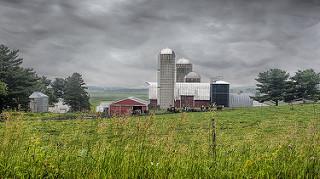April 12, 2018
Challenging Historic Discrimination Against Agricultural Workers

Dairy workers on opposite sides of the United States are bringing new claims to challenge the exclusion of farmworkers from state-level protections.
In New York, dairy workers are relying on the New York state constitution to challenge a state law that exempts agricultural workers from the right to organize a union and bargain collectively. Across the country in Washington, dairy workers filed a class action lawsuit to challenge a state law that exempts agricultural workers from overtime pay, arguing that it is unconstitutional under the Washington state constitution.
When Congress passed the National Labor Relations Act (NLRA) in 1935 and the Fair Labor Standards Act in 1938 they excluded workers in industries like agriculture from many labor protections. At the time, these industries were dominated by African-American workers. Congress’s decision to exclude them from workplace protections was largely motivated by racism.
Later state laws, often modelled directly after the NLRA, replicated these discriminatory exemptions. As a result, agricultural and domestic workers have historically not been guaranteed basic legal protections like overtime pay or the right to organize a union and collectively bargain. In recent years, domestic workers have organized policy campaigns to extend these protections to domestic workers, state by state. However, more recently, agricultural workers have begun to challenge this long history of discrimination through the courts.
Farmworkers in New Mexico filed one of the first cases to challenge these historic exemptions. Before this case, farmworkers and ranch hands were excluded from state workers’ compensation law. In 2016, the New Mexico Supreme Court ruled that this exclusion was illegal under the New Mexico state constitution.
While no case has ever successfully challenged agricultural exemptions in federal laws like the NLRA, these state cases could be a preview of lawsuits to challenge federal-level exemptions. As the New York and Washington cases work their way through the courts, advocates and workers alike are waiting to see if a nearly century-old form of legalized discrimination will finally come to a close.
Image: Wisconsin Farm by Randen Pederson licensed under CC BY 2.0.
